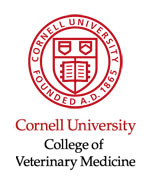"Veterinary Challenges Regarding the Utilization
of the Kafue Lechwe (Kobus leche kafuensis) in Zambia"
Victor M. Siamudaala, J.B. Muma, H.M
Munang’andu
and M. Mulumba
(talk delivered by Misheck Mulumba)
The Kafue lechwe (Kobus leche kafuensis), which is endemic
to the Kafue flats of Zambia, has immense ecological and
socio-economic importance. It is important in the maintenance
of the fertility of the Kafue flats and fisheries. Fish are
the major food source for aquatic birds. Economically, the
lechwe is an important tourist attraction and is hunted for
meat, hides and trophies. Its ecological and socio-economic
importance is, however, progressively coming under threat
from infectious diseases. A number of diseases have been
isolated in the Kafue lechwe. Some of these diseases such
as brucellosis and tuberculosis pose serious conservation
and public health challenges. The lechwe population has steadily
declined from an estimated 80,000 in the 1970s to 41,000
in the mid-1980s. Infectious diseases, poaching and increased
grazing pressure are considered the major factors responsible
for the population decline. The translocation of the lechwe
to game ranches adjacent to cattle farms increases opportunities
for the bi-directional transmission of diseases. A number
of diseases, including brucellosis and tuberculosis, have
been diagnosed in lechwes on game ranches. The lechwe is
now considered the sylvatic host for tuberculosis and brucellosis,
thereby complicating control of these diseases in livestock
that share the same grazing pasture on the Kafue flats. In
addition, the lack of veterinary certification of wildlife
products in the country places humans at risk of contracting
zoonotic diseases.
|
|











